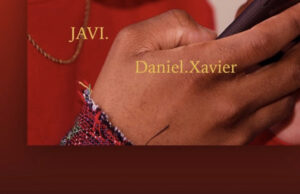“Please Me” takes charts by storm with new beats
In general, songs about sex aren’t great. They either stay too squeaky clean to be enjoyable in an effort to get radio play (see: Charlie Puth ft. Meghan Trainor’s “Marvin Gaye”), or they dirty it up to the point where there’s nothing attractive about anything they’re describing. Neither extreme is attractive. The beat is either too slow or too fast, the vocals are either too intense or too unaffected, and the lyrics are either too dirty or too clean, mainly because our society really wants to get it on, but also really, really doesn’t want to talk about it. Music is stuck between those two attitudes, in that it must provide the soundtrack to the aforementioned happy endings without forcing people to think about those happy endings. Intelligent enough to be interesting, but brainless enough to not make us uncomfortable. “Please Me,” the second collaboration between Bruno Mars and Cardi B, is proof that a song doesn’t need to be riddled with curse words to instill feelings of discomfort about putting its lyrics in a school newspaper. With the exception of five or six words, the entire song could be played over the radio without raising any brows, but that doesn’t mean it’s vague or child-friendly. Bruno Mars and Cardi B have collaborated once previously, in early 2018, when Cardi B featured on Mars’s song “Finesse.” In “Finesse” they proved that they are capable of sounding like they have chemistry. In “Please Me,” they prove that they are capable of sounding like they put that chemistry into action. They begin by singing, “Please me, baby/ Turn around and just tease me, baby,” and already the song separates itself from a million poorly done duets about sex with one key fact: they sound like they’re telling the truth, or at least some version of it. Hearing this song, I believe that (1) both of these people either have some amount of sexual prowess or, at the very least, are capable of projecting it, and (2) they either have some amount of chemistry, or are talented enough to fake it. Both of these lend it to being, if not a good song, then at least a credible one. In pop music, both sex and partying are popular topics of discussion, albeit a bit more so in and before 2010, when everything was either a club song, a sex song or both simultaneously. Where these songs fall flat is when the singers fail to communicate that their stated experiences are authentic and real. These songs slot the performer into a certain role, and when they don’t act properly, the song suffers. Both Cardi B and Bruno Mars pull this off flawlessly. When they sing, “Turn around and just tease me, baby/ You know what I want and what I need, baby,” it’s believable. When Cardi B states, “Let me demonstrate,” she does so with authority. When Bruno Mars says, “Girl, I ain’t one for begging, but now you’ve got me begging,” it seems honest and credible, despite the fact that he once recorded a song that implied a girl denying him sex was akin to being “locked out of heaven,” in which he begged endlessly for the aforementioned woman to end his celibacy. Even as filled with unnecessary repetitions and poorly written lyrics, it’s good. What makes both Cardi B and Bruno Mars stand out as individuals is that, in a world of Drake and Post Malone and a million other sad boy rap artists, they have a beat. They sound like they enjoy what they’re doing. In early 2018, when every song was slow and droning and depressed, their song “Finesse” felt like a breath of fresh air. It just sounded like nothing else on the radio. Sure, their lyrics aren’t great. Or good. In fact, most of the time they hover between uninterestingly superficial and downright bad. Cardi B’s most popular work is as a guest rapper, where her ability to display her lyrical abilities is somewhat stifled by the singer she’s working with, and Bruno Mars’s best lyrics are almost all works of colossal arrogance in which he brags about (1) his material possessions and money, (2) how much women want to sleep with him or (3) his luxury, style and class. While items (1) and (3) on this list may seem somewhat identical, they are what typically separates Bruno Mars from other musical artists bragging about their possessions. The reason Bruno Mars’s “24K Magic” works is the same reason Ariana Grande’s “7 Rings” doesn’t: Mars focuses on a vague energy, a vibe he has because of his wealth, rather than on specific luxurious things he owns. While he mentions his “Cuban links [and] designer minks,” they aren’t the main focus of the song. The main focus is the “24 karat magic,” the energy of his wealth. This is also why “Finesse” and even “Please Me” are good songs. They don’t focus on specific aspects of his wealth or sexual encounters, just on the energy brought on by those things, making his experiences not only more believable and relatable to the average person, but also more interesting. Anyone can write that they had sex, and since it became appropriate to play on the radio and MTV, almost everyone has. Hearing a singer describe their sexual experiences is no longer shocking or interesting, but what is interesting is hearing them describe how those experiences made them feel, which “Please Me” does perfectly.









You must be logged in to post a comment Login